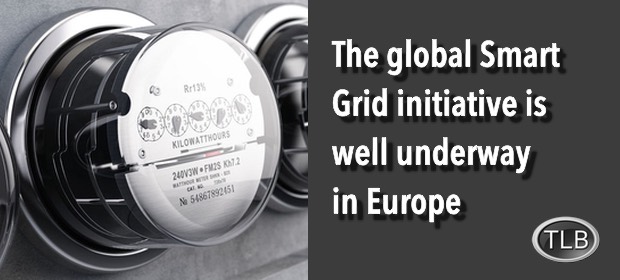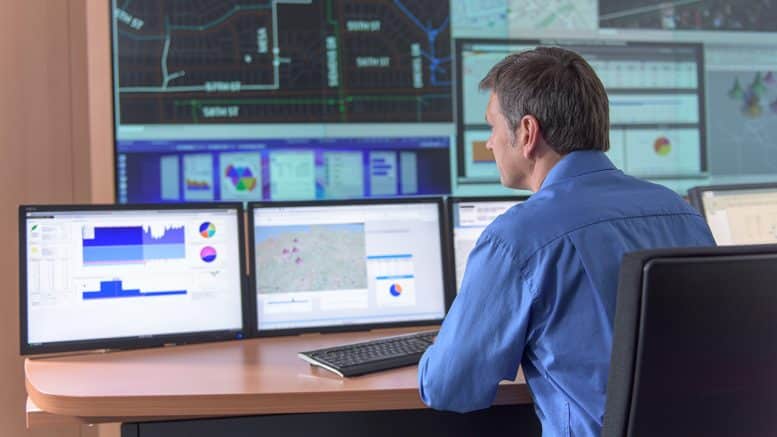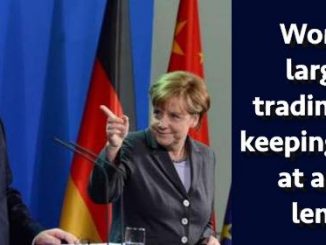
ER Editor: From the site Metering and Smart Energy International, a short report from October 31, 2017 titled Smart Metering in Europe, states:
More than 200 million European households will have smart meters in 2023. A new report by Berg Insight says that smart metering has reached a stage of early maturity with mass rollouts underway in significant parts of Western Europe. Almost 40% of the 281 million electricity customers in EU28+2 had a smart meter at the end of 2017, a share that is set to increase to 70% over the coming five years.
As a consequence, annual shipments of smart electricity meters will reach a peak of around 28 million units per year in 2019/2020. The majority of the new installations will take place in France, Spain and the UK, with significant contribution also coming from countries like Austria and the Netherlands. After Italy, which had a head-start, Spain was the first major country in Western Europe to begin mass deployments at the start of this decade. France and the UK have started to ramp up the rate of installations, which will peak at an aggregate level of 10–12 million units per year in the period 2018–2020.
**********
Siemens Is Blanketing Europe With Smart Meters, Including Portugal
 Image: Siemens
Image: SiemensThanks to a TN reader in Portugal (hat tip to JL), this article points out that Smart Grid via Smart Meter installation is a global affair, as pointed out by this article translated from a Portuguese journal. All of the global Smart Grid initiative was started at the same time in 2009 with the release of stimulus money after the financial meltdown. The fact that multiple nations funded their Smart Grid projects in the same manner at the same time indicates a global strategy where some global entity or group was pulling all the strings. I suggest it was Technocrats pulling for Technocracy, aka, Sustainable Development. ⁃ TN Editor
SAPOTEK
Siemens is one of the suppliers of the new smart meters that EDP Distribuição is already installing at the clients’ homes, in a phased strategy. But in addition to the smart meters, the company has also developed the system that will allow the management and control of all data in the electrical network.
More precision in consumption measurements but also more detailed information, and more regular data communications with the power service provider – no need for manual counts – are some of the advantages that the new smart meters (also known as smart meters or Energy Boxes ) allow. And the immediate benefits are transferred to customers and to EDP Distribuição, but they also prepare the system for future challenges, such as the possibility for each user to be a producer and store of energy.
By 2020, 80% of customers’ home-installed meters will be smart, gradually replacing analog meters that are still in the vast majority of Portuguese homes and bringing the model closer to what has been developed in Evora with the InovGrid project, which is globally recognized as a case of innovation. And by 2022 all accountants have to be changed, by imposition of the European Union.
The transformation is being done in a phased way and 1.3 million meters must be installed by the end of this year. This year there are 600 thousand that are in the plan, as confirmed by EDP Distribuição to TeK.
EDP Distribuição adds that it has already installed “around 900,000 equipment that is more than a mere meter of electricity consumption. They are state-of-the-art equipment, generators of efficiency throughout the system.” And it guarantees that the installation of the equipment is free and at no moment will be charged any value by the installation or the equipment.
The new counters are installed without customer intervention and the energy company explains that “all new places of consumption are equipped with this new equipment. We are also already assembling this equipment in all places of consumption of urban areas of the capitals of district “.
And who will receive these accountants? In addition to new installations, there are also substitutions “for other technical reasons”. “The abovementioned program follows a criterion of structured expansion around the transformer stations supplying low voltage networks, covering, as long as there are conditions of access, all the places of consumption technically linked to those processing stations, independently of the marketer with which each customer has its supply contract, “explains the company in response to the TeK questions.
A significant part of the new meters installed is the result of a contract signed by Siemens Portugal and Landis + Gyr with EDP Distribuição, which provides for the installation of 800 thousand Energy Boxes by the end of 2018. Among the suppliers qualified to provide smart meters are also the ZIV, ENERMETER, ZTE and JANZ.
EDP Distribuição also notes that smart meters are only part of the investment that the company is making “as part of its program to renew the measurement park at low voltage points of delivery up to 41.4 kVA of contracted power.” “In the expansion of these assets, it is necessary to consider other necessary technical devices such as communication systems and controllers in the processing stations. Overall, taking into account other activities and associated developments, the investment value is around 35 million euros, “he says.
Large design
In a meeting with journalists, Fernando Silva, responsible for the Energy Management division of Siemens Portugal, explains that the project is one of the largest in the area of smart metering and brings great advantages in terms of energy consumption management and tools for customers to measure and track expenses, opening doors to flexibilization and dynamic tariffs.
“This system has a great potential since the billing is based on real values and not estimates, and brings more transparency to the process, with providers to be able to provide more detailed information on consumption, which reduces litigation”, explains Fernando Silva.
He says analog meters, which are still being used in most cases, have a longer lifespan, staying for 25 years or more, but this is because digital counters evolve according to progression of the energy supply business and allow new tools for operators. The reliability of the counts is always one of the important criteria in the selection of these equipments, being the minimums above 99.9%, but in the case of Energy Boxes of Landis + Gyr it is also contemplated the possibility of software and firmware upgrade remotely, and some control alerts.
Currently the company is already delivering, per week, 9 The10 thousand Energy Boxes manufactured by Landis + Gyr. EDP Distribuição is already installing the equipment in the customers’ homes, with the goal of reaching 2 million homes by the end of 2018, and 100% of households by 2022, as defined by the European Union targets for the use of smart counters.
A platform for smarter network management
In addition to the provision of smart meters, Siemens Portugal is also implementing a network information management system at EDP Distribuição that bridges the new meters and analogue models, and also allows the collection and management of network data .
The Energy Data Manager is based on the Siemens EnergyIP platform but integrates Portuguese know-how and ensures greater flexibility for EDP Distribuição, which is one of the largest implementations of the platform worldwide.
The system is being developed about a year ago and goes into production in early July, on a scale of 1 to 10 by the end of the year, with the connection to 600,000 meters, and should be running in full across the network until January 1, 2019, when it will manage 6.2 million customers in Portugal.
“The biggest challenge was to integrate legacy systems (analog meters) and new smart meters, with the same reliability,” explains journalists Fernando Silva, who also highlights the volume of data that will be managed.
“With 6.2 million meters, and even if the count is done hourly, we are talking about 150 million readings per day,” he says. And if the regulation allows readings every 15 minutes, the challenge is even greater.
“Siemens has a great advantage in these integrations because we know the whole course, from electrification to automation and now we are in digital transformation,” says Fernando Silva.
So far EDP Distribuição had several different systems to process all this information and it was necessary to put everything together in a single platform that integrates with the company’s SAP billing system.
The objective is also to use the system in other operations of EDP Distribuição, of electricity and gas, but also to export this know-how added to the platform to other geographies, namely in the region of Australia but also in Brazil. “We are working in these countries with these projects with the experience engineering and software from Siemens, and also with the proximity of the language, ” he told TeK.
************
Original article
ER recommends other articles by Technocracy News
Featured image courtesy of Metering and Smart Energy International with thanks




